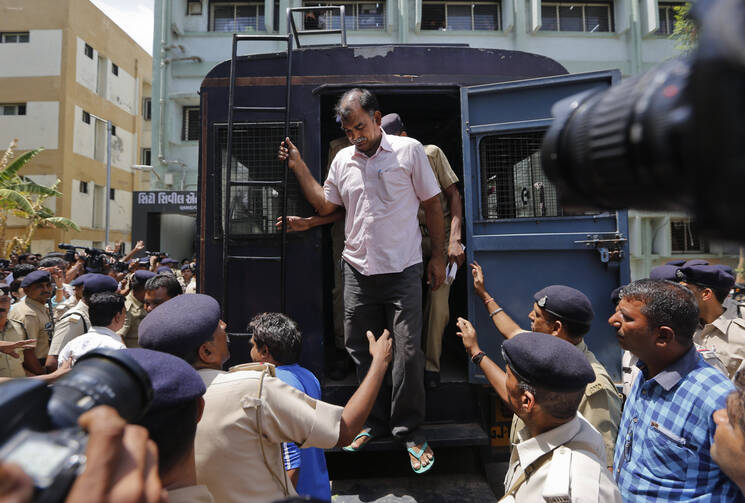An Indian court convicted 24 Hindu men for their role in one of the many deadly religious riots that swept across the western state of Gujarat for three months in 2002, leaving more than 1,000 dead.
The Gujarat riots, which erupted after a train car full of Hindu nationalists was engulfed in a fire that killed 60 people inside, pitted mobs of Hindus against Muslims, who were widely blamed for setting the fire, though arson was never confirmed.
The riots have long hounded Prime Minister Narendra Modi, who was Gujarat's top elected official at the time, amid allegations that authorities allowed and even encouraged the bloodshed. Modi has repeatedly denied having any role, and India's Supreme Court has said it found no evidence to prosecute him.
In Thursday's verdict, 11 of the defendants were found guilty of murder, while another 36 were acquitted of all charges in connection with the riot in a Muslim neighborhood called the Gulbarg Society in the city of Ahmadabad. In the attack, some 35 homes were set on fire and 69 people were killed, most of them burned to death, including a former lawmaker from the opposition Congress party, Ehsan Jafri.
Jafri's widow said she was disappointed so many were acquitted. "This verdict is half justice to me," Zakia Jafri said.
Ahmadabad Special Court Judge P. B. Desai said sentences would be announced Monday. Those convicted of murder could be sentenced to death.
Among those acquitted for lack of evidence was a leader of Modi's Hindu nationalist Bharatiya Janata Party, Bipin Patel.
The riots have spurred dozens of national and international investigations, including nine that the Supreme Court decided should be prosecuted. Other authorities including the state of Gujarat have filed more lawsuits. Some investigators also found that the train fire was accidental.
But the cases have moved slowly through India's creaky legal system.
The first high-profile convictions from the 2002 riots came 10 years later when Maya Kodnani, a former state government minister, and 31 others were found guilty of charges ranging from rioting to murder linked to an attack in a small industrial town on Ahmadabad's outskirts in which 95 people were killed.
Kodnani was sentenced to 28 years in prison, but has been free on bail since the 2012 conviction pending her appeal.
For years, Modi was criticized for failing to apologize for the riots. In December 2013, while campaigning for national elections, Modi spoke of his "anguish" over the bloodshed in a carefully worded statement that appeared to have been crafted to convey that he had nothing to apologize for.
Copyright 2016 The Associated Press. All rights reserved. This material may not be published, broadcast, rewritten or redistributed.








